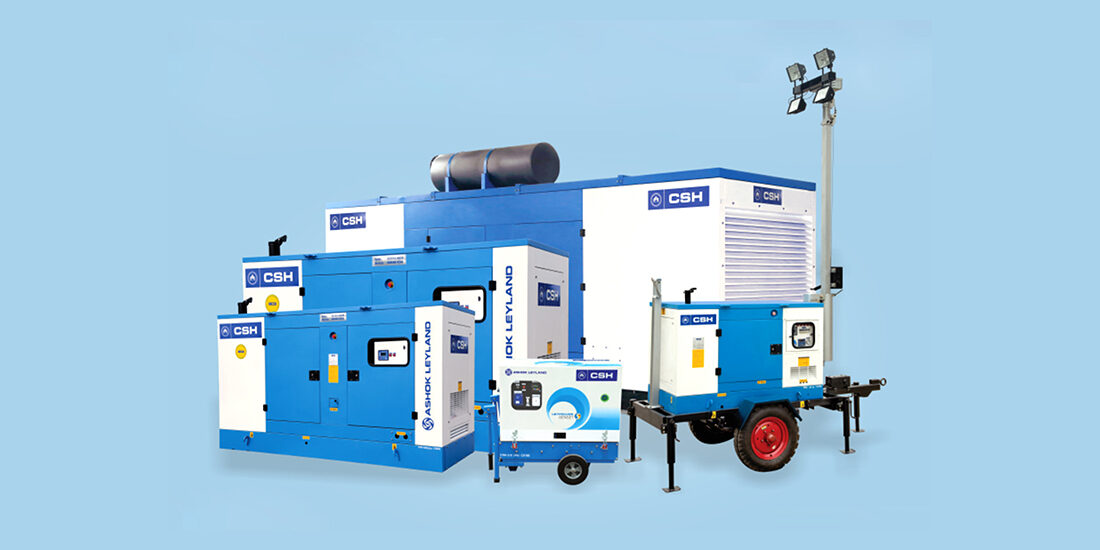We live in a digital era where the possibilities of innovation are deeply exciting! And, in the digital revolution, speed, novelty and agility are competitive qualities; for which electricity plays a key factor. Generators help keep things running, as they have the ability to power small and larger items, right from decorative serial lights to large parts of a developing city’s infrastructure like Airports, Hospitals and electronic hubs.
Looking at it from a commercial point of view, several industries and construction sites heavily depend on generators. On the other hand, for corporate offices, silent generators play a pivotal role in providing a sophisticated solution that offers flexibility and portability of workflow, despite power outages or weather conditions.
Industrial Uses of Generators
More than domestic use, generators are used in several industrial applications. Here are a few places that they are commonly used in.
- Offices and Commercial Utilities: With several blackouts and power outages still a common issue even in developing metropolitan cities, generators play an important when there is an interruption of power supply. For instance, hospitals are able to continue to provide necessary emergency care like life support.
- Construction and Industrial Sites: Remote locations can seldom be powered by the conventional state power supply. In such cases, generators become an essential support tool for development. For instance, construction sites require silent generators with lighting towers to facilitate undisruptive workflow.
- Recreational Activities: Right from melas, to weddings and concerts, generators play the role of providing a power backup that would otherwise interrupt service caused by inclement weather or otherwise.
Top Buying Considerations
There are many things to consider while making a purchase decision. These include:
- Fuel and Power Requirements
While fuel and power requirements might seem like two separate factors, they do go hand-in-hand. For instance, electric generators, which are powered by rechargeable batteries, are sufficient for power specifications ranging from 1kva~20kva. These are a good option if the backup is only required for a couple of hours.For more rugged use, fuel-based generators (Diesel, Natural Gas, etc.) are a clear solution, as they have a greater capacity to withstand long hours of use. They are specifically designed for larger power requirements ranging from 5kva~2500kva. Further, they can also be used outdoors and would hold well during incremental weather conditions.
While choosing fuel-based generators it’s important to pick one that is more fuel-efficient. For instance, diesel generators use far less fuel than those powered by other fuel sources.
- Operating method
Most commercial and industrial generators are meant to function as standby generators, which are permanently installed inside or outside a building facility. You can commonly see such generators in residential and commercial complexes. Usually, the power of the entire building runs through them, so that, if and when there is a drop in voltage or a break in power supply, they immediately provide a power backup.This backup is either automatic or has to be manually switched on. Since automatic models provide ease in operation, they are obviously more popular these days. The biggest advantage of automatic backup is that they provide an almost seamless transition in an event of a power outage. This is why such models are preferred by hospitals, corporate offices, and storage facilities. A residential building may not need such expedite power backup, a manual start model can suit such requirements.
- Portability
Portable models allow convenience and flexibility in terms of use and application. They are common in the construction and manufacturing industry, especially in remote job sites. They are also used to power temporary establishments like events, pop-up food stalls, rallies etc.Portable generators have wheels and might also have lighting towers. These additional features can be extremely useful in areas like agriculture, or mining. For instance, irrigation in several fields are based on the water pump system, and these might require a significant level of movement.
- Safety and regulatory Features
Since generators can harness a significant level of power, safety is an important criterion. Safety begins even at the installation stage. It’s critical to choose a company which provides safe installation. Factors like earthing, ventilation and a concrete foundation add to the safety of the generator. It is also imperative that you understand various aspects such as cooling and the presence of different sensors to handle faults like high temperatures and low oil pressure.
Another pressure point is noise-level. Especially in residential and certain commercial locations, decibel levels have to be in check. Buying Silent generators work the best in such situations. Mostly, a silencer option is available inside the canopy of the diesel generators up to a power capacity of 150~160kva.
Conclusion
Just like any other piece of machinery, purpose features high in the priority list. Once you have figured out your requirements making a decision becomes much easier. If you are unsure about what model will suit your requirements, you can contact us to help you make a decision.

